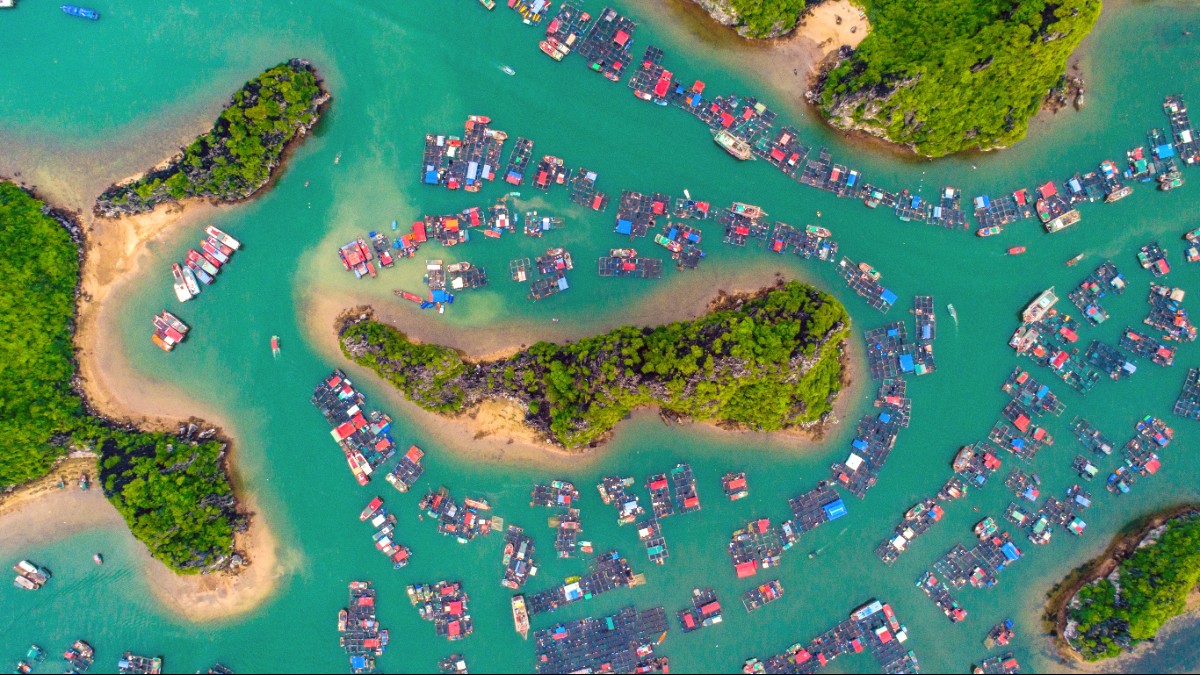
Northeast Vietnam, Vietnam
Cat Ba National Park, an UNESCO Biosphere Reserve, works to protect its unique biodiversity, especially the critically endangered Cat Ba Langur. Stay on designated trails.
Waste management on Cat Ba Island, and in Vietnam generally, faces challenges. Littering is common, and recycling infrastructure is limited. Minimize your waste during your visit.
Freshwater resources on Cat Ba Island can feel strained, specifically during the dry season. Practice water conservation in your accommodation: take shorter showers and turn off taps when not in use.
Navigate interactions respectfully, honoring local customs.
Support local craftspeople and businesses that uphold traditional practices. Respect the traditions of local communities, especially in places like Viet Hai Village.
Ask for permission before taking photos of people. A polite gesture and smile often suffice.
Always be mindful of people's privacy. Avoid intrusive photography.
Remove your shoes before entering temples or pagodas. Dress modestly.
Look for accommodations that demonstrate environmental responsibility, including energy efficiency and waste reduction. Consider Ecobnb for eco-friendly stays.
Explore EcobnbChoose tour operators that promote responsible tourism in Lan Ha Bay. This means proper waste disposal on boats and refraining from disturbing wildlife. Ethical tour operators like G Adventures specialize in this.
Find G Adventures ToursYour choices as a traveler directly influence the preservation of Cat Ba's natural beauty and cultural heritage.
Support the local economy to see your visit benefit the community.
Support tour operators or homestays that directly benefit local communities, like those in Viet Hai Village. Such initiatives see a fairer distribution of tourism revenue.
While specific fair trade shops might be rare on Cat Ba, prioritize buying from local, independent vendors directly. This means more of your money stays within the local economy.
If you wish to contribute, research local non-governmental organizations or reputable charities working on education, health, or environmental protection.
Your money has a more lasting and impactful effect when directed to established organizations rather than direct handouts.
Seek out groups focused on sustainable development or preserving the Cat Ba Langur. Organizations like Terrapass assist with carbon offsets.
Do not give money directly to begging children; this can encourage begging and discourage school attendance.
Be aware of potential exploitation, specifically concerning animal welfare. Avoid tours that promote direct interaction with wild animals (e.g., feeding monkeys on Monkey Island), as this can disrupt their natural behavior and cause harm.
Your travel decisions greatly influence the well-being of the local community and environment.